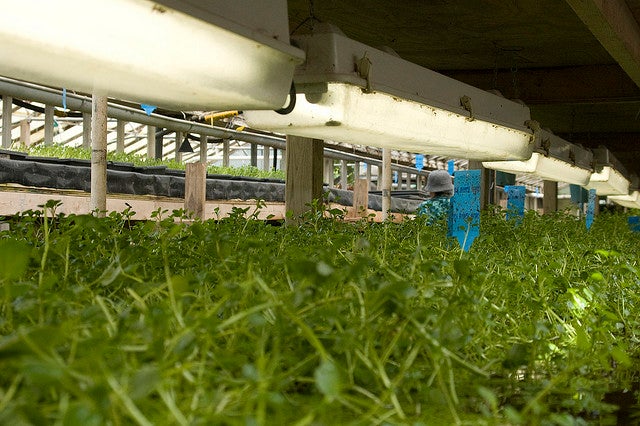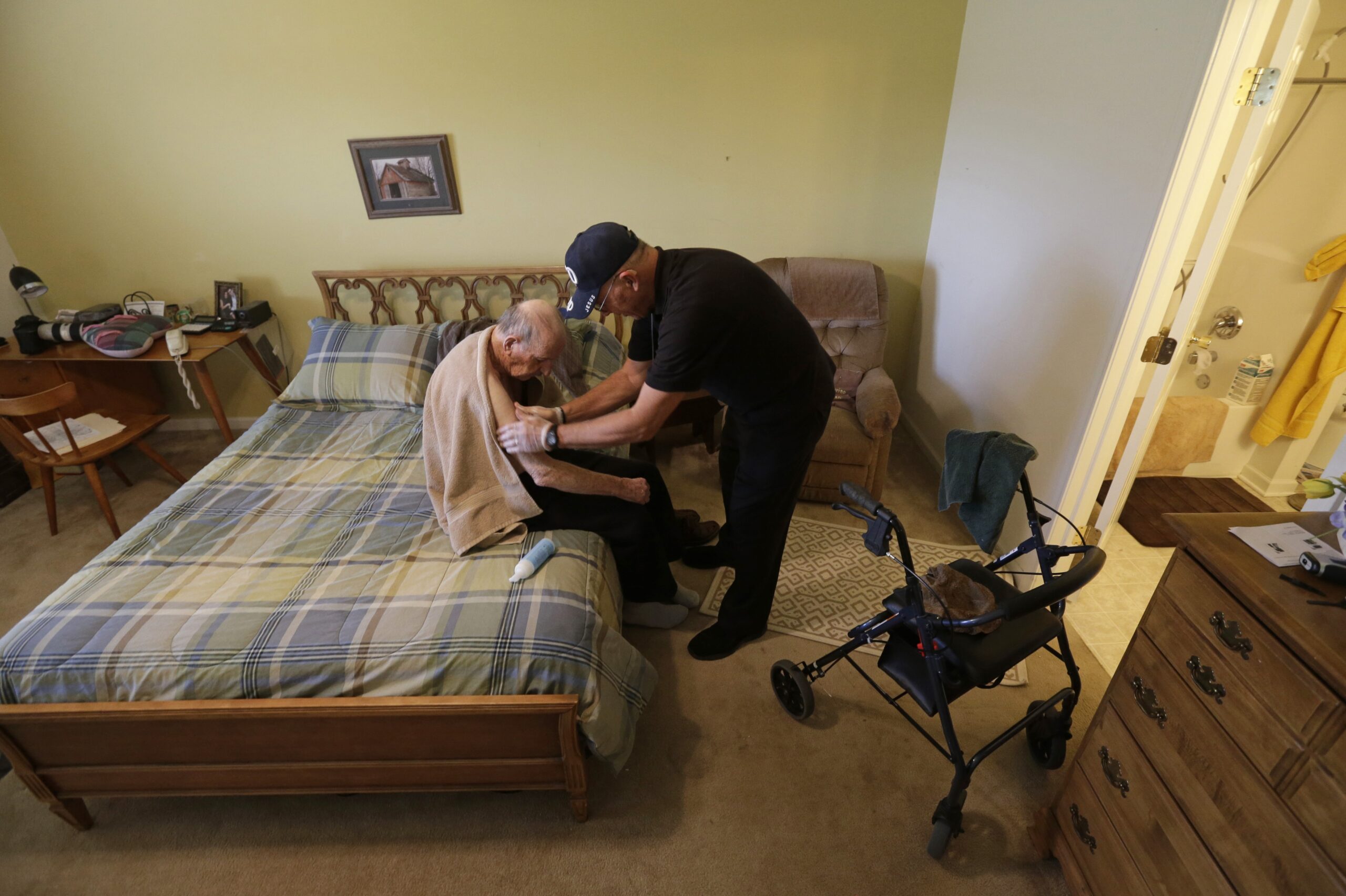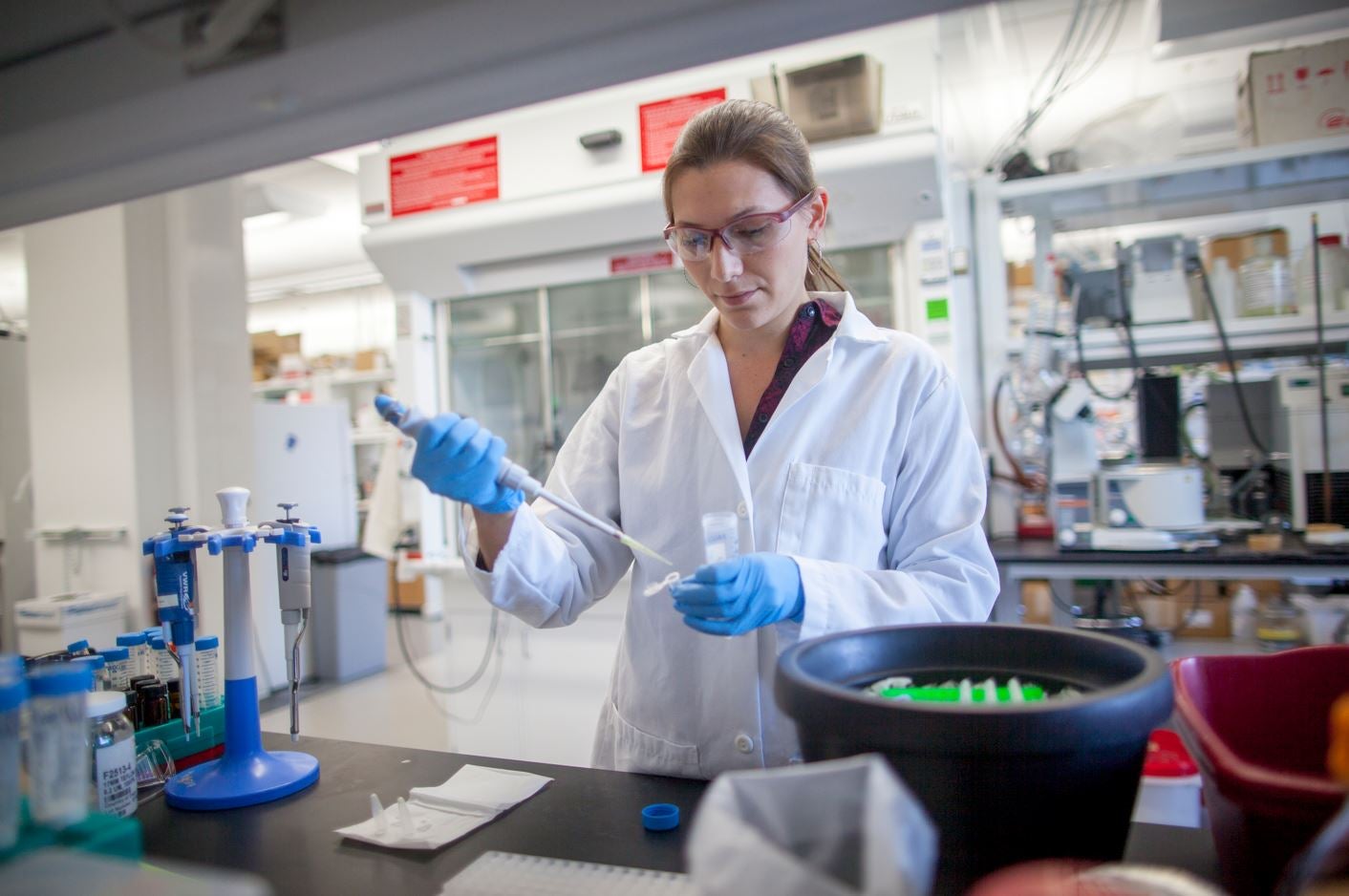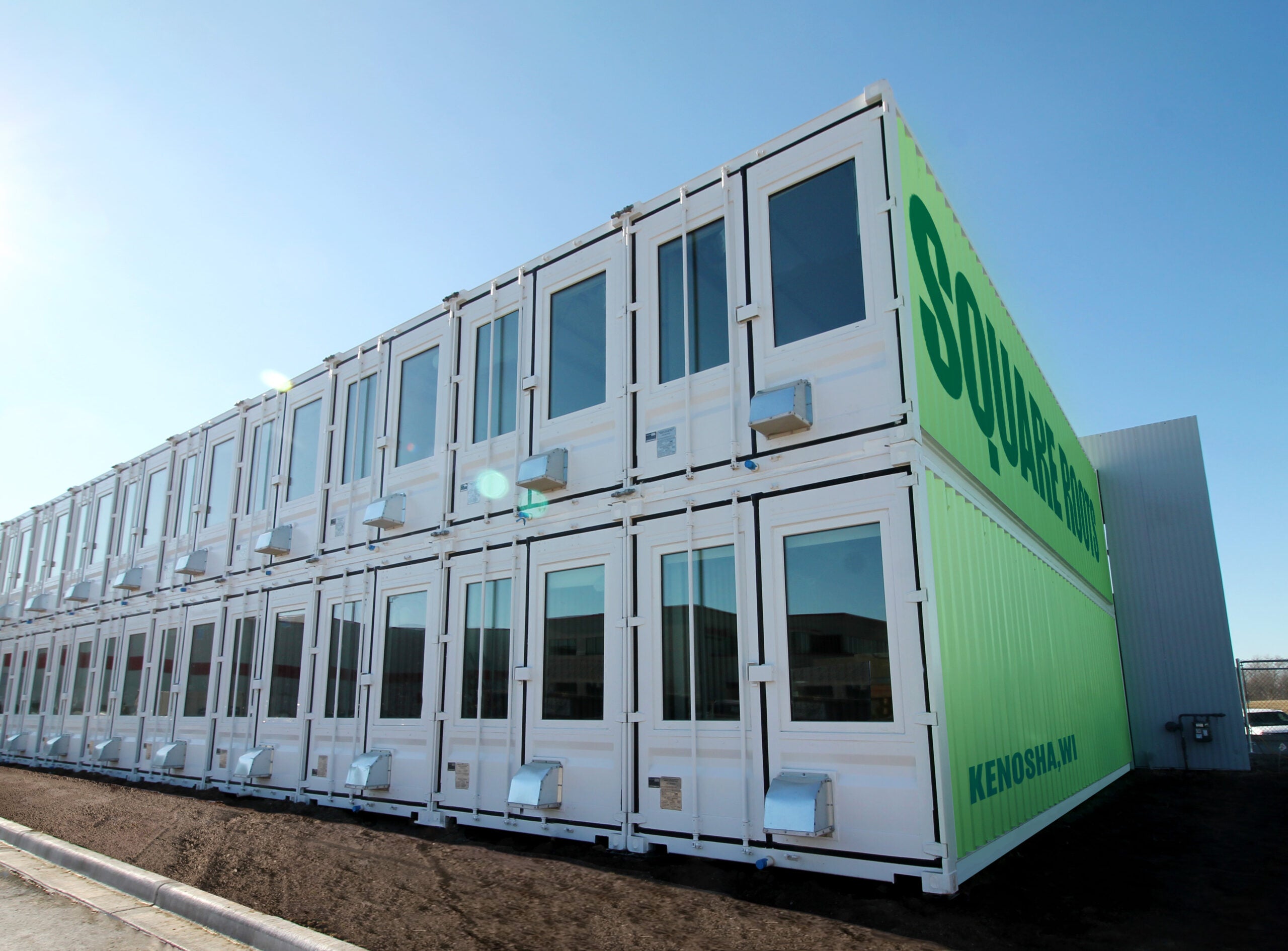University of Wisconsin-Stevens Point is partnering with a Montello company to build an Aquaponics Innovation Center that will train workers and develop new techniques for a growing food production industry.
The center will be located inside a 13,500 square-foot greenhouse at Nelson and Pade, a Montello company that specializes in commercial aquaponics, which combines fish farming with hydroponic agriculture. Co-owner Rebecca Nelson said the center will benefit both the company and the university.
“The partnership that we have with UWSP has really allowed us as a company to grow the educational side of our offerings, and it has assisted UWSP in delving into a whole new area of agriculture that has such great growth potential,” she said. “We can grow more food in a given space with fewer resources and do it without the use of pesticides and herbicides.”
Stay informed on the latest news
Sign up for WPR’s email newsletter.
Nelson said the Aquaponics Innovation Center could help bring different kinds of fish to the marketplace.
“Most commonly when you look at commercial aquaponics, people are raising tilapia, which is a warm-water, very hardy, popular food fish,” Nelson said. “Here in Wisconsin there’s a lot of demand for looking at local species.”
Those local species include walleye and sauger. Nelson said the research could lead to better techniques for growing fish and vegetables together.
“I think one of the most important areas of focus will really be on the microbiology and understanding, or better understanding, the beneficial bacteria that convert the fish waste into the nutrients that the plants use,” Nelson said.
The Aquaponics Innovation Center will also train UW-Stevens Point students for work in a rapidly growing industry. The project is supported by a $677,500 state grant.
Wisconsin Public Radio, © Copyright 2024, Board of Regents of the University of Wisconsin System and Wisconsin Educational Communications Board.






